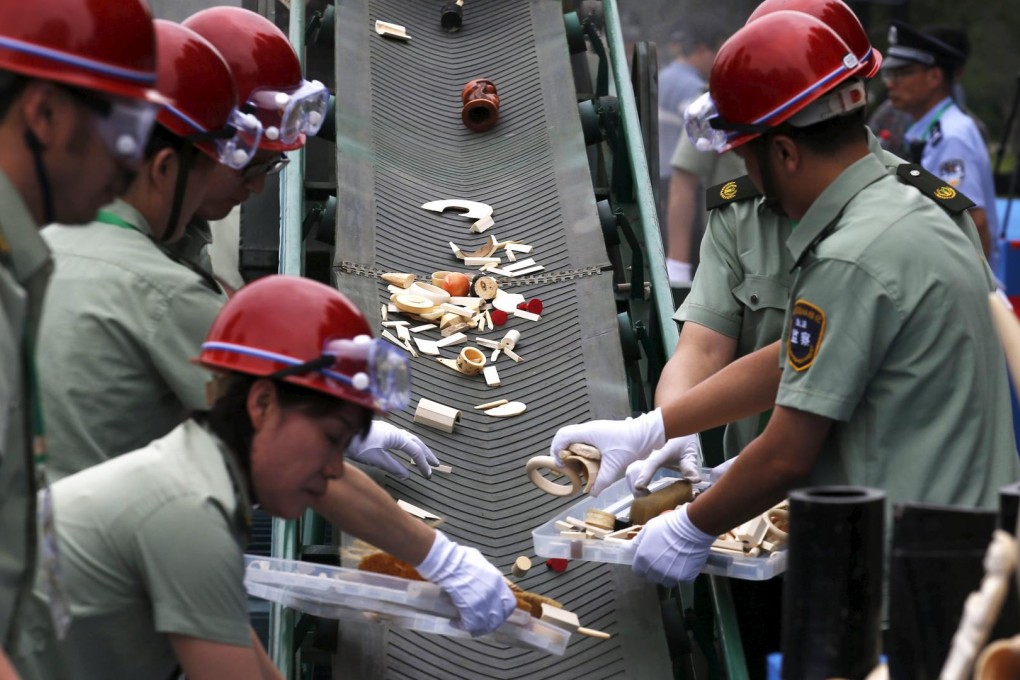Is China finally crushing its ivory trade?
Patrick Bergin calls on Beijing to follow up on its apparent pledge to phase out a business that profits from murdered elephants, to save these threatened animals

Last Friday, the Chinese government destroyed 662kg of confiscated ivory in Beijing, a move that was largely symbolic but nevertheless a positive development for elephant conservation. Each time ivory is destroyed publicly, whether in Congo-Brazzaville or Colorado, the world's attention is trained on the elephant crisis. When the event is orchestrated in a country such as China, the world's largest ivory market, the message conveyed is significant.
The event last week, however, appeared to deliver more than symbolism when Zhao Shucong, head of the State Forestry Administration, made the following statement: "We will strictly control ivory processing and trade until the commercial processing and sale of ivory and its products are eventually halted."
Could this mean a phasing out of China's legal domestic ivory trade? Many of us in the conservation community are taking those words to mean as much. Certainly, over the past 18 months, Beijing has taken action to ensure its citizens are not complicit in the illicit ivory trade, which claims the lives of between 25,000 and 35,000 elephants in Africa annually. In January last year, the State Forestry Administration crushed more than 6 tonnes of ivory in Dongguan . Hong Kong began a phased destruction of its 30-tonne stockpile in May last year.
Last Thursday, a day before the Beijing ivory crush, the Beijing Capital International Airport's customs office announced a campaign to discourage Chinese travellers from buying ivory abroad and bringing it home. A member of the customs' anti-trafficking department noted that more than a tonne of ivory products had been confiscated at the airport since 2014, much of it smuggled from countries in Africa.
This perhaps explains the sudden one-year moratorium on carved ivory imports imposed by the State Forestry Administration in February. Given its small scope and temporal limitations, however, the moratorium will do nothing to restrain China's thriving domestic ivory market or provide Africa's elephants a reprieve from the poaching.
Allowing a legal ivory trade - even a strictly controlled one - to persist will always undermine conservation efforts on the ground, regardless of the number of official proclamations or symbolic events staged. That's because the legal trade complicates law enforcement efforts by providing a convenient disguise for the illegal trade. It also serves to legitimise the ownership of an animal product in the name of art or for the purposes of financial speculation or "investment". Shutting down the trade entirely would close the loophole often exploited by ivory traffickers and help establish a lasting taboo around owning a product obtained from a brutally murdered animal.